Song of a Century- (Pt 3.Khitan Image-Heavy Megacampaign)
- Thread starter dragoon9105
- Start date
-
We have updated our Community Code of Conduct. Please read through the new rules for the forum that are an integral part of Paradox Interactive’s User Agreement.
You are using an out of date browser. It may not display this or other websites correctly.
You should upgrade or use an alternative browser.
You should upgrade or use an alternative browser.
Threadmarks
View all 37 threadmarks
Reader mode
Reader mode
Recent threadmarks
Chapter 25: The Infantryman and his rifle Chapter 26: Drowning in Mud Chapter 27: Breaking Point Chapter 28: A War to End All War Chapter 29: The Guns Fall Silent Chapter 30: The End of All Things Chapter 31: Myths and Reality Chapter 32: Tumbling Down
Chapter 30: The End of All Things
Chapter 30: The End of All Things

The War was over, but the peace ultimately had not yet been truly signed. With fighting ending across Europe and Asia, the representatives of the Republican League sent representatives to the Khitan Imperial Palace in Flanders. Within the initial conversations were war demands but also the future of a Europe and the World now that victory had been achieved.
To this end there was several viewpoints, Revanchism, Balance of Power and Supremacy, all unofficial terms to describe the different stances of the various Major contributors to the War effort.
The Greeks who had undertaken extensive fighting in Magna Graecia and their Balkan territories wanted to be compensated greatly from the defeated powers. With some Greek delegates demanding borders not seen since Justinian's day. In a Modern climate where nationality and the will of the people however ruled the day such demands were untenable and ultimately were dismissed for what they were, grandious claims in hopes that the Greek Republic could bargain down from rather than starting with more conservative ones.
The British, who had contributed heavily to the war in Africa, and whos navy was vital in locking off American aid to the Central Powers had valued status quo in europe, and the removal of the dangerous and inflamatory colonies of Bohemia, Italy and Spain in Africa. However, a lack of any change in Europe was simply a no sell to either the Greeks of Khitan who had done the majority of the fighting on the ground and had men who had died by the millions in the war. The British had no chance to gain anything from demands made in Europe after all, and so any colonial changes would come alongside European ones.
The Khitan stance was thus, ensure the Central Powers could never again reunited to threaten Greco-Khitan dominance of Europe, Anglo-Khitan Dominance of Africa and the precarious Sino-Anglo-Khitan dominance of Asia. Thus important industrial regions would need to be dismantled, demilitarized or seized entirely, Khitan and Greek back republics needed to be installed in Russia, Bohemia and Italy with the possibility that such countries such as Bohemia be broken up along ethnic lines. For the Greeks however this solution was considered dangerous at best and suicide at worse, the validation of Self Determination for previously forgotten ethnicities such as Germans, Ukranians, Avars and Balkan peoples would have lasting shockwaves on the Greek's onw multiethnic republic. Though it wasnt a central point of the Khitan proposal it ultimately would be used in the congress to discredit many of President Waverly's points.



The Largest change in the Map of Europe however was the birth of the South German Federal Union of the Danube, otherwise known as the Federal Union of Bavaria or Bavarian Republic. Created as both a State for German peoples and also to serve as an essential military link between the Hellenic and Khitan Republics, and the divorce further co-operation between Italy and Bohemia.





In Africa, the Story was simple, complete partition. No Central Powers colonies was left, save Morrocco which the Spanish held several centuries long claims to. The British rather infuriatingly were denied access of a connection between their gains in the Congo and Mutapa as Khitan Diplomats refused to redraw the maps for their own colonies in a peace conference. The Greeks, rather reluctantly were given compensation in Africa to avoid further demands in Europe, being given the North Congo, Senegal and the entirety of Italian and Bohemian North Africa. Britain was given a Naval base at Oran to protect her shipping in the Mediterranean.
Italy would also cede her Java colonies to the United States of Central America and otherwise the Status Quo would be upheld in Asia due to Japan's separate peace with the Khitan Republic. Thus concluding the peace conference's demands.
Overall the Central powers had been heavily reduced, and the stipulations of Antwerp meant that their armies would be restricted to self defense forces be forced to make regular reparations payments. In particular Italy had much of the Po valley under occupation during this period both to ensure the payments arrived on time but also to ensure no rapid militarization occurred, effectively holding the country's industry, hostage.
The Treaty would be declared a great victory by some, others would be more skeptical. Hardliners who wanted the complete destruction of Bohemia and Italy as entities of the map of course would never be pleased but even some moderates estimated that peace could not last and that at worst, the Greeks who had started the war had been given license to keep growing into a hegemony that could Threaten Khitan dominance of the world. The Presence of Greek colonies in Africa would only serve to stoke such fears.

In the Immediate aftermath of the war however things were not quite as had hoped. the Japanese occupation in Khitan China had caused a Famine, the likes of which the Empire had not suffered in well over a century and of a scale far greater as well. Combined with the Devastation of the Ukraine, Hostility from the United States and rapid demobilization across the world millions would die and the empire would ultimately be slow to reach and provide aid to one of its more important regions.
The Japanese, who were still fighting the United States had similar issues with thier own colonies. With growing political and ethnic consciousness in the area the entire country would slowly become a hotbed of unrest and resentment within years of the war's end.

In the defeated central powers this resentment was targeted not at the old establishment but at the new imposed democracies that had started this war and forced such abhorant peace terms upon their nations, and fairly notably, the United States as well who was seen as having sold out her allies in order to preserve her own ambitions.

In America, with stalemate on the Alaskan frontier not making much news, the Great California earthquake had turned the war devastated and for the most part, forgotten California's situation from bad to worse. With unprecedented complete destruction of the Capital city in San Francisco bay occurring the Country was for almost a week without leadership or direction. For many it had seemed that God himself was rejecting the way the world had turned.


(Ignore the Date)
In 1915, The Khitan Republic would hold elections, With President waverly stepping down due to age and health concerns the Liberals, who campaigned on an anti military, low corporate regulation and social rights protection swept the election taking a slim majority on the Senate and winning the presidency. The Liberal President, a man by the name of Alexander Dumonte had promised to fufill the demands of a war wearing populace and send boys home from occupational garrisons in Italy and Bohemia, and ensure the protection of democratic in Europe through diplomacy, not interventionism.

Speaking of Democracy in Europe, the Plebiscites which were demanded by the Treaty of Antwerp had been held in this time, and the results would range widely in legitimacy and scale of scandal. In Spain the Plebicites for Navarra and Barcelona ultimately were resolved but with heavy vote tampering from local officials to ensure union with the Spanish, as Aquitaine, devastated by war was openly accused in the streets as attempting to pillage Catalonia. The Basques, similarly were hesitant to leave union with for fear of reprisal by either Aquitaine for its traditional claims on the region or Portugal for its betrayal.
In Bohemia however things were far, far worse. Nationalism did not simply die with the war, and the new Democratic Government of Bohemia was considered to have offered such elections without the mandate of the people. In order to ensure Dresden remained in Bohemian hands, factions within the Polish and Bohemian government lobbied to send thousands into the region to vote, similarly, Ethnic Bohemians and Poles born in Dresden and its surrounding counties were recalled and encouraged to vote to oppose the Germans in the region from Joining with Holstein. In some instances rioting and violence were the natural result. By the time of the Plebicites end, Dresden did manage to remain in Bohemian hands, though news stories about the Ballot had spread stating that the Khitan had tried to split the ticket between asking the Locals to Go with Bohemia or Poland or Holstein, implying that the Republic intended to divide the entire country soon.
While this particular instance was not true, it ultimately gathered a large amount of attraction with both formal and underground press, specifically within newborn fascist circles, the most prominent being the Polish Impreza Ludowa, or people's party.

The late 1910's would quickly become known as the Red 10's as the Communists and Socialists returned in force, particularly in Bohemia. In an effort to keep the elections free and fair Socialist parties were allowed the vote in Krakow by Khitan authorities. With this permission, several Socialist movements regrouped together under the National Workers Party based around the Bohemian and Polish Coal Miners unions. When they ultimately swept the 1918 Elections the rest of Europe held their breath.
The NWP quickly set about nationalizing private industry and establishing 'The Congress of Three' a legislative government aimed at promoted a national Polish-Bohemian identity, allowing Ukrainians to participate in government for the first time. These acts, particularly the re-nationalization of Oil refineries in Poland drew the wrong type of attention from Europe who quickly cut ties from the Socialist Led Second Krakow Republic.

Japan and The United States in unison denounced the Californian Republic, having both royal ties to the new executed royal family. Rumors of war in the pacific rim had begun to circulate, as the Californian People's Republic had begun to take shape out of the mess of various militarized unions and socialist academia.
The last and heaviest shock however was to come on Red Monday on May 1st, The Mayday protests in the Hellenic Republic had accidentally turned violent when Troops garrisoning Wallachia mistoke mayday celebrations for a nationalist riot. When news reached the rest of the country, it was assumed that the Hardline Conservative party was attempting to crackdown on Socialist unions throughout the country after four years of moves to regress union rights and impede both social and economic mobility in order to keep new Greek territories compliant with the status quo.


it was civil war.
Last edited:
I dont want to set the world on fire...
One or two more updates guys covering the interwar period, and then were onto Hoi4.
And since its not telling much at this point, heres a teaser or two


They do, but they have thier own problems now. Dominance comes at a cost after all.
Oh the KhitanEmpire Republic is Fine over here, Its just everyone Else that has the problem. I'm sure Germany appreciates being free though!.
What is this worm nonsense, There is Zun and Zun alone. To Worship a worm shows great disrespect to the giver of justice, after all how can he give justice if he has no arms!
Look, I'm Sure they learned their lessons about fighting a global industrial total war... Right?
Pah, compared to Austria Hungary and Germany, they got off easy, Poland-Bohemia should be Thankful I didnt make them six countries instead of just two.
Oh dont you worry about him, I'm sure he is a proud member of the Bavarian army right now, after witnessing his homeland become devastated by years of Bohemian exploitation and then Khitan 'Liberation' I imagine he is quite a different person, Maybe a prominent officer, or maybe he will die in the next war, whos to say really.
One or two more updates guys covering the interwar period, and then were onto Hoi4.
And since its not telling much at this point, heres a teaser or two


Well, America was the big winner here, even more than OTL. For almost no cost they dominate their continent.
They do, but they have thier own problems now. Dominance comes at a cost after all.
Woo, we've won boys! Long live democracy, long live Cathay!
Since the Khitan Republic did win this war, I think its a given they will be in a much better postion than Weimar Germany was in OTL. Who knows, maybe they'll even propser and have a golden age, given that the victory will probably be enough to legitimacy the Republic. Who knows, anything can happen in the decades between this war and HOI4, but we can only hope.
Yep, the idea of Germany attribiting anything to world history is, well....

Best part about this meme is that Asuka from Evangelion is actually German, so I feel this version of the meme was more appropriate than the Skinner verison in this context.
Anyway, the war is over now, so here's the last song I'll play for these updates; approritley about the end of the Great War. And may there will never be another war again.
Oh the Khitan
In the end, we have dominance. The Central Powers will have many regrets soon, I'm sure...
Since I noticed @dragoon9105 reading @zenphoenix 's AAR just now, that gives me the the opportunity to share this link to a Worm based forum that I already shared with Zen. It's been awhile since we've referenced the Anniona's Holy Terran Empire here.
Praise the Worm, long live the Annionas!
I might be taking this fake Worm worshiping a bit too far.
What is this worm nonsense, There is Zun and Zun alone. To Worship a worm shows great disrespect to the giver of justice, after all how can he give justice if he has no arms!
Leave it to the Americans to ruin the plan just as the Greeks were done. Maybe this is a wake up call for the Central Powers to kick the Americans out of the faction and out of European politics eh?
War's over but the bitterness will remain. Who will be the.unlucky nation that shall fall to either Communism or Fascism? The next few years are going to be a joy to read!
This is not peace. This is a ceasefire lasting a decade or two.
Look, I'm Sure they learned their lessons about fighting a global industrial total war... Right?
Time for dishonourable peace treaties
Pah, compared to Austria Hungary and Germany, they got off easy, Poland-Bohemia should be Thankful I didnt make them six countries instead of just two.
What do you mean? He can't hear you because he's dead. Enlisted in the army and got blown to pieces by a shell. And even if he did survive, why would we not let him hear us? He's just a failed art student.
Oh dont you worry about him, I'm sure he is a proud member of the Bavarian army right now, after witnessing his homeland become devastated by years of Bohemian exploitation and then Khitan 'Liberation' I imagine he is quite a different person, Maybe a prominent officer, or maybe he will die in the next war, whos to say really.
Last edited:
Polish Impreza Ludowa
'Partia', not 'Impreza'. Both words mean 'party' in English, but first one is political, while second one is an entertainment.
So much loss, for so little. And now the world is on fire. Will Khitan need a strong man in place to fix this? Or Will democracy prevail?
The British rather infuriatingly were denied access of a connection between their gains in the Congo and Mutapa as Khitan Diplomats refused to redraw the maps for their own colonies in a peace conference.
Is this a Portuguese Pink Map reference?
Wow, that's a lot of revolutions and civil wars, obliviously the Greek Civil War is the biggest, but it seems to me that the Californian revolution will spell the end of California as a sovereign state. I imagine that the USA wouldn't tolerate a communist state on its border and would use the opportunity to annex California for good. A real shame, I always thought this Sino-Japanese California was interesting lore wise.
I suppose, one way or another, America would always span sea from shining sea eventually.
Also, I see this fascism is becoming a thing now. That totally won't catch on to several countries in a couple decades, nope.
I suppose, one way or another, America would always span sea from shining sea eventually.
Also, I see this fascism is becoming a thing now. That totally won't catch on to several countries in a couple decades, nope.
Xinjiang's naming here seems a bit weird since it's not in the region that's traditionally called that, though I guess in Mandarin it does denote a border or frontier territory, so maybe the Khitai were just trying to be fancy,
Ah yes, I see you graduated from the Kaiserreich school of FREAKING CIVIL WARS EVERYWHERE.
Well, depending on how the Greek Civil War plays out, I think I can guess who you'll be fighting in WW2. The real question is who will fight alongside you.
Chapter 31: Myths and Reality
Chapter 31: Myths and Reality
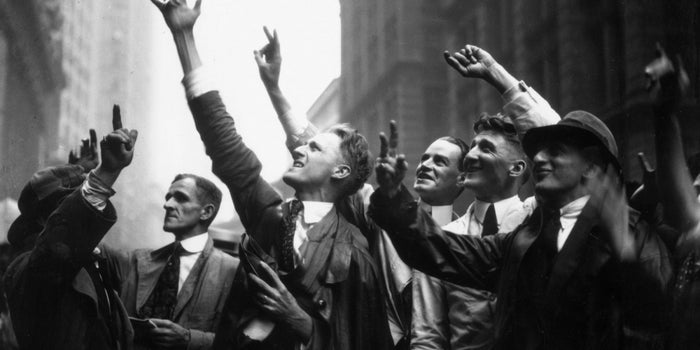
Civil war burning in Greece, Revolution in California and the settling of Politics in the new Democracies of Central and Eastern Europe were the events of the day. Still despite it all, after almost a decade after The Great War, the world economy had now begun to sing, and wartime innovations now being offered for public consumption.
In America, a short relatively bloodless war in comparison to her compatriots had led to a booming peacetime economy. In Western Europe this upsurge was mirrored particularly in the countries of Spain, Britain and Cathay.
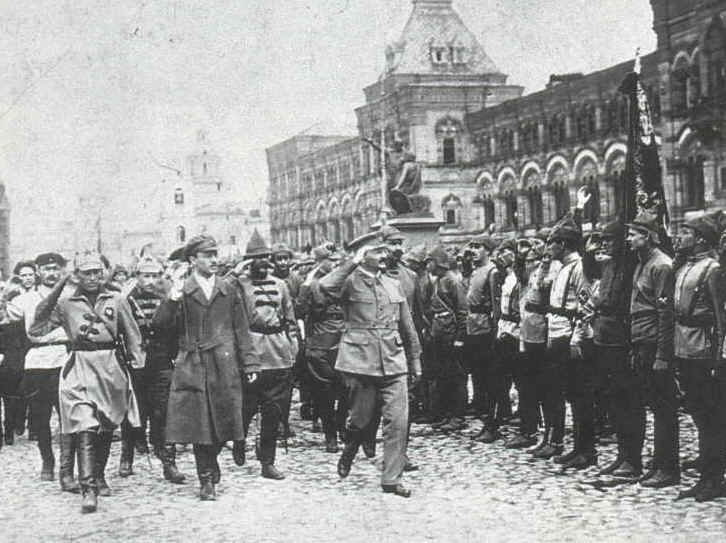
With the growing Red Tide in the countryside Nikolaou had commanded the Greek Special Police, (The EAD) to round up potential socialist sympathizers, within both the military and government to prevent the situation from worsening. At the same time Nikolaou requested and received volunteer aid from the Khitan Republic, as well as Britain.
There was of course another problem, The Navy, which had long been considered a conservative Bastion had lost a considerable number of its ships during the Takings of Zadar. In Egypt there was a complete different issue, Local nationalist revolutionaries had seized Alexandria as well as several other major cities and were planning to fight a war for independence while Republican forces battled in Greece and Anatolia to preserve the government.
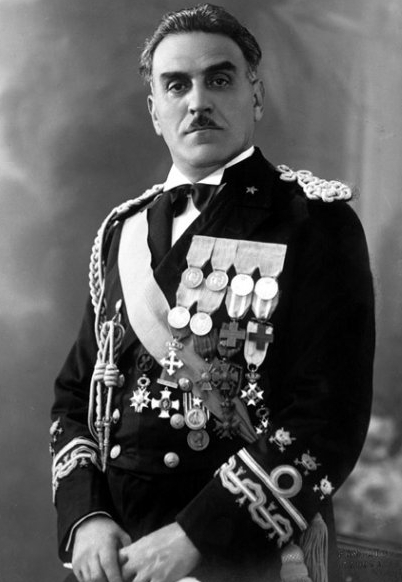
The remaining Greek Republican Fleet, for fear of being taken by Revolutionaries had been moved to Napoli under the command of Admiral Basil Stavros, who's command of Magna Graecia during the Greek civil war would earn him the Moniker Stavros 'The Imperator' for both his hardline and ruthless tactics in keeping the region suppressed but also his effective independence, ignoring orders from the Military Government with many suspecting Stavros intended to fight his own private war against the communists using the remains of the Greek Mediterranean Fleet, The Greek Marines and the Local Magna-Graecian militias..

The Military many of had remained in command since the end of the great war spoke publicly about the futility of such actions, and also the hypocrisy of Army budget cuts while the Naval and Colonial branches of the country in fact received further distribution of taxpayer wealth.
It ultimately however was a battle the army could not win. The War in the public mind had been fought primarily on the ground, Tanks, Machine guns and Barbed wire were featured on photographs and spoken of by shell shocked veterans. The Navy, similarly had a 'clean' war and the Colonial Force, particularly the ANZAC and Africa garrisons were funded by Colonial administrations. Ultimately resulting in the reduction of all Armored training operations, the reduction of the Khitan military by 40% and outstanding military orders for 2,000 for the Post War RD-11 Tank were cut to just 300.

This action would ultimately lead to the so called Extremist 'Surge' for the UWC. Though this surge would cause the birth of one of the first true 'Fascist' parties in Europe. Geoffery Malliard's 'Divine' Socialist party.

The DSP promoted a return to religious values, a strong stance against communism in foreign policy and domestically what Malliard and his followers named the Three Pillars, Purity of Mind, Soul and Body. In his 1924 Manifesto he spoke extensively about the need to remove Ethnic French and German peoples from Khitan borders for the sake of greater political stability, The use of Eugenics and a return to divine marriage practices among the genetically pure to remove Genetic 'abnormalities' such as mental illness and the return of a strong military industrial complex for the Defense of the State and her empire. All wrapped around a welfare package not to dissimilar to that Labour was pushing though all DSP socialist policies were for Ethnic Khitan only. There would also be a tax credit system given out to established and prominent functionaries of the Church, Monarchy and State, especially those that could trace family lineage back to the days of the conquest.
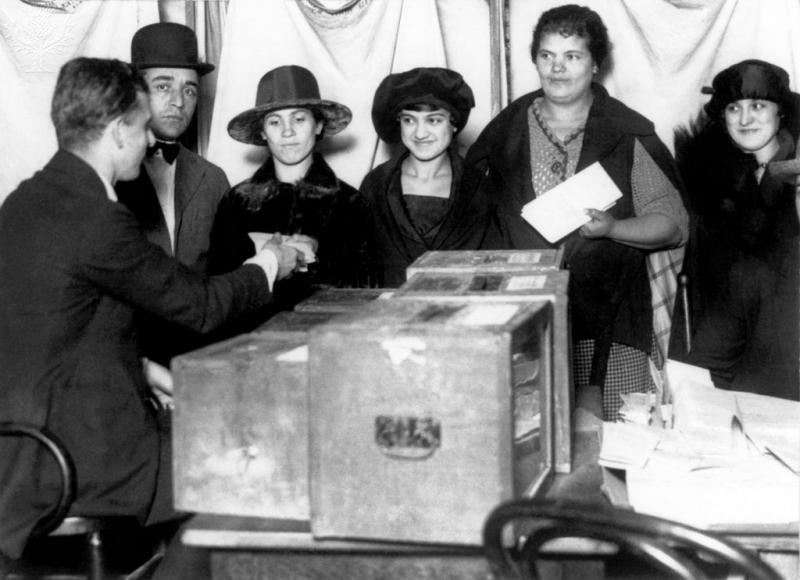

Russia at least for the moment however would be the exception of the post war central powers. Bohemia and Italy remained at least nominally stable, The Scandinavian Republic was enjoying a period of quiet, having gotten off relatively easy during the war, and of course Spain outside of issues regarding her northern territories retained her strong economic heartland having been spared the ravages of war, and so was a major player in the Interwar economy.

The New Naval Treaty would limit all ships to some extent but most prominently limited the number of battleships, their armaments and displacement based on tonnage based on a ratio of all participating Powers.
The New Status quo moving forward would Put the Khitan Empire, Japan and America at an equal level for Naval Tonnage, Followed by Britain, Greece and the USCA. Followed by Finally Scandinavia and Spain. All other major powers would be considered equals to existing brackets when signed and approved by the Khitan Empire, Japan and the United States or otherwise be sorted into the lowest bracket.
The Ratio would ultimately be as follows: 5:5:5: 3:3:3 2:2:1
While all powers acknoledged that they may grow to regret the treaty in the future, Japan and the Khitan Empire now had assurances from DC that a Naval Race with America was at least going to be delayed by a decade or so. The Americans for giving the Japanese legal parity with them in the pacific would receive aid in crushing the Communists in California and putting the region under military occupation until such a time it was judged to be stable.

Aid continued to arrive but it became slower and more cautious. Admiral Stavros intercepted large percentages for his own betterment in Sicily. The lack of true communication or organization on the front also meant sometimes supplies were delivered to the red forces instead. In at least three separate instances, British and Khitan Volunteers accompanying armor shipments were hijacked in port by Red Guard and their equipment, which included Armstrong Tanks was found being utilized against the Whites no more than half a year later at Bagdad.


Effort to deal with the SBU came slowly, all other Socialist Governments in Europe has collapsed within a decade, and many expected Admiral Stavros would ultimately return and overthrow the Socialist Government given some support. This did not happen and as 1930 Congress of Socialists loomed the Vanguard party was removed in favor of the Decentralists, an anarcho-Syndicalist group that wished to collectivize agriculture and pursue a policy of revenge against the bourgeois. They would also change the color of the SBU flag from Red, back to Purple.
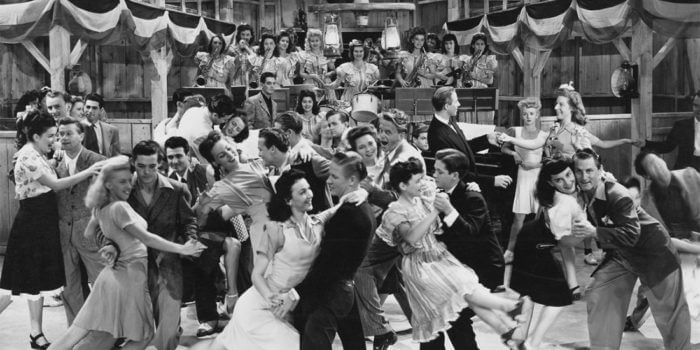
Even Bohemia and Italy had begun to experience this post war economic boon. In 1924 the Socialists had been elected out of Krakow by the Moral Conservative party and reparation payments were arriving on time. In Italy, reconstruction had finished leading to an explosion in the automobile and aircraft industry as new factories replaced the old with new more modern goods. Though both nations had incredibly unstable politics, with unrest within the far worse off lower middle and poor classes. Meanwhile entrenched political elites, retired military men mostly looked on at the oncoming specter of communism, and at the modern erosion of culture with both fear and disdain.
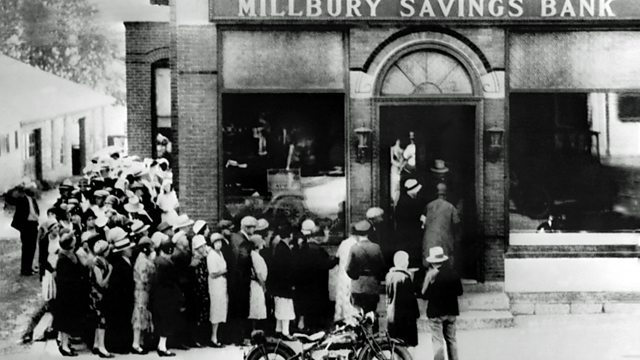
As few stock brokers discovered in early one morning in late 1928 however, Things were about to grow far, far worse.
Last edited:
One more coming on the great depression at some point in the future(probably next week), I had time for the rest of the 20's Today, so I figured, Why not right?
Everything is fine? the economy is great, yes some of our allies might have gone.. wrong recently but, its not like the Bohemians and Italians are about to do anything. Right?
It was going to happen eventually, I'm honestly a bit surprised it took them so long. I didn't expect communists though. That was a surprise.
It was already referenced earlier in regards to Bohemia's colonies, Its just sort of been a reoccurring issue in Africa because of my continued control of Cape Colony. The British (And Bohemians) landed in those regions on there on their own initiative originally though, so it was always going to be a thing
I mean, just two, The Socialists were 'elected' in Bohemia and were 'elected' out. Italy has the revolutionary moniker because Victoria is weird and accidentally gave them the incorrect name, its still a Democracy. California though, Yea... I Mean, Yea... If there was anything stopping the Yanks from dominating an entire continent well its gone now. Nice job breaking it reds.
I'm not quite sure *Why* Xingjiang got cores so far west. But since Persia lost it was definitely being released. I assume that the name is infact yes based on the mandarin meaning and so it migrated cemented as a replacement for Uzbekistan and Kazakhstan and well there you go.
Only like two.. right now.. and California's was short, Things might get worse though.. But I'm sure its fine.
Germany is in fact here, so peaceful and full of life, I hope nothing happens to it..
Clearly USA vs Khitan Empire rematch, how could any other nation possibly stand a chance
So much loss, for so little. And now the world is on fire. Will Khitan need a strong man in place to fix this? Or Will democracy prevail?
Everything is fine? the economy is great, yes some of our allies might have gone.. wrong recently but, its not like the Bohemians and Italians are about to do anything. Right?
The Greek Civil War is not, it must be admitted, a complete surprise.
It was going to happen eventually, I'm honestly a bit surprised it took them so long. I didn't expect communists though. That was a surprise.
Is this a Portuguese Pink Map reference?
It was already referenced earlier in regards to Bohemia's colonies, Its just sort of been a reoccurring issue in Africa because of my continued control of Cape Colony. The British (And Bohemians) landed in those regions on there on their own initiative originally though, so it was always going to be a thing
Wow, that's a lot of revolutions and civil wars, obliviously the Greek Civil War is the biggest, but it seems to me that the Californian revolution will spell the end of California as a sovereign state. I imagine that the USA wouldn't tolerate a communist state on its border and would use the opportunity to annex California for good. A real shame, I always thought this Sino-Japanese California was interesting lore wise.
I suppose, one way or another, America would always span sea from shining sea eventually.
Also, I see this fascism is becoming a thing now. That totally won't catch on to several countries in a couple decades, nope.
I mean, just two, The Socialists were 'elected' in Bohemia and were 'elected' out. Italy has the revolutionary moniker because Victoria is weird and accidentally gave them the incorrect name, its still a Democracy. California though, Yea... I Mean, Yea... If there was anything stopping the Yanks from dominating an entire continent well its gone now. Nice job breaking it reds.
Xinjiang's naming here seems a bit weird since it's not in the region that's traditionally called that, though I guess in Mandarin it does denote a border or frontier territory, so maybe the Khitai were just trying to be fancy,
I'm not quite sure *Why* Xingjiang got cores so far west. But since Persia lost it was definitely being released. I assume that the name is infact yes based on the mandarin meaning and so it migrated cemented as a replacement for Uzbekistan and Kazakhstan and well there you go.
Ah yes, I see you graduated from the Kaiserreich school of FREAKING CIVIL WARS EVERYWHERE.
Only like two.. right now.. and California's was short, Things might get worse though.. But I'm sure its fine.
Communists, dishonor and Germany oh my!
Germany is in fact here, so peaceful and full of life, I hope nothing happens to it..
Well, depending on how the Greek Civil War plays out, I think I can guess who you'll be fighting in WW2. The real question is who will fight alongside you.
Clearly USA vs Khitan Empire rematch, how could any other nation possibly stand a chance
So, another revolution has seems to have found a home in Greece once more. If a liberal Greece was a threat a century ago, imagine how terrifying Communist Greece would be.
Say, remember this HOI4 teasar from EU4?

I guess we'll be seeing a Greek Tito-Stalin now that the Communists rule Greece, that's my prediction anyway.
Is it just me, or is the flag in this image much cooler than the Soviet recolor flag in this update (through that purple recolor does look nice in its own way)? I also really like the communists Californian flag even through its just a recolor of the old monarchist flag; Red and Gold look nice together.
At least the Khitan economy is doing alright; well, it was anyway. I do see this fascist Divine Socialist Party, but I'm sure that's going to be completely irrelevant moving forwards.
I do see this fascist Divine Socialist Party, but I'm sure that's going to be completely irrelevant moving forwards.
Say, remember this HOI4 teasar from EU4?

I guess we'll be seeing a Greek Tito-Stalin now that the Communists rule Greece, that's my prediction anyway.
Is it just me, or is the flag in this image much cooler than the Soviet recolor flag in this update (through that purple recolor does look nice in its own way)? I also really like the communists Californian flag even through its just a recolor of the old monarchist flag; Red and Gold look nice together.
At least the Khitan economy is doing alright; well, it was anyway.
Last edited:
oh god, oh fuckSo, another revolution has seems to have found a home in Greece once more. If a liberal Greece was a threat a century ago, imagine how terrifying Communist Greece would be.
Say, remember this HOI4 teasar from EU4?

I guess we'll be seeing a Greek Tito-Stalin now that the Communists rule Greece, that's my prediction anyway.
Is it just me, or is the flag in this image much cooler than the Soviet recolor flag in this update (through that purple recolor does look nice in its own way)? I also really like the communists Californian flag even through its just a recolor of the old monarchist flag; Red and Gold look nice together.
At least the Khitan economy is doing alright; well, it was anyway.I do see this fascist Divine Socialist Party, but I'm sure that's going to be completely irrelevant moving forwards.

Ah, what a happy note to end things on before the conversion than an economic crash. I'm sure that next update will be all laughs.
It will feature (killer) clowns and we WILL all laugh, or else.Ah, what a happy note to end things on before the conversion than an economic crash. I'm sure that next update will be all laughs.
joker_dancing_on_stairway.gifIt will feature (killer) clowns and we WILL all laugh, or else.
Threadmarks
View all 37 threadmarks
Reader mode
Reader mode

